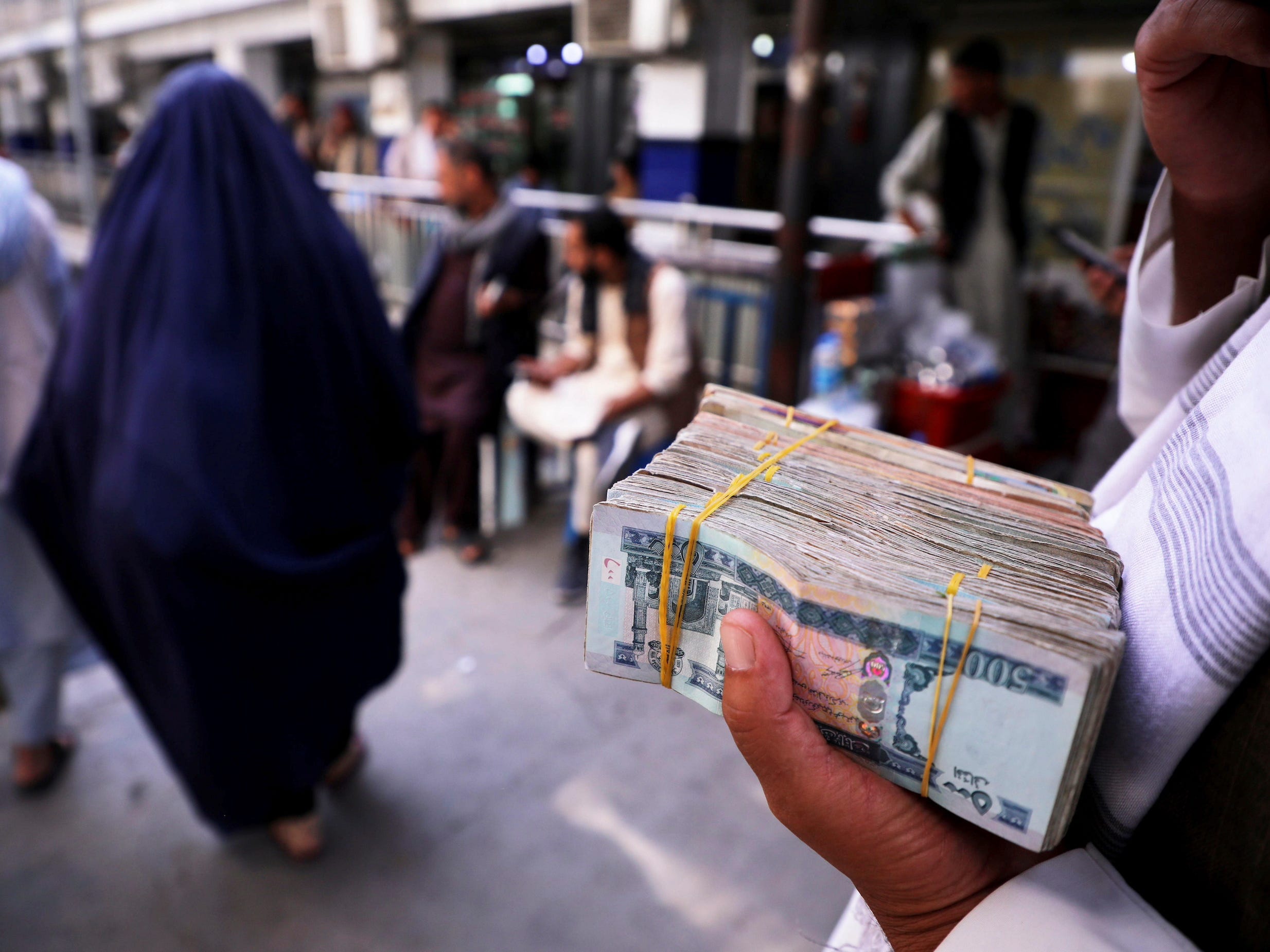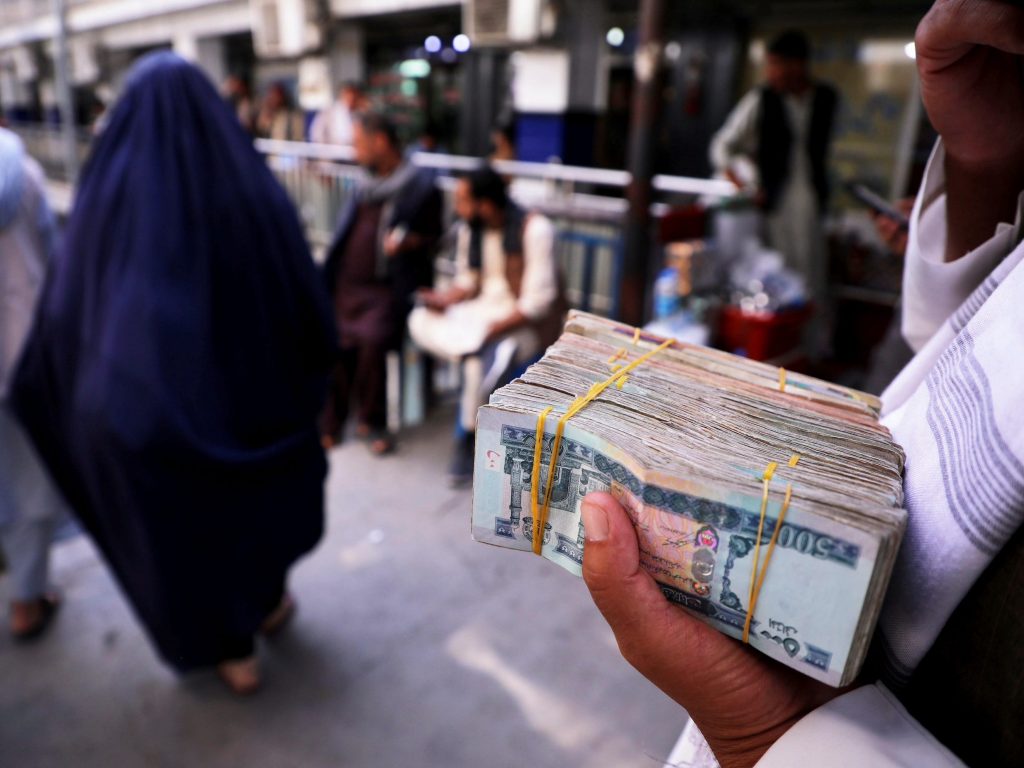
REUTERS/Stringer
- Afghanistan's banks are facing a money shortage and may have to close to the public soon.
- Bankers fear the situation could lead to inflated food and electricity prices, Reuters reported.
- The Taliban has also been unable to get its hands on billions in frozen assets.
- See more stories on Insider's business page.
Afghanistan's banks are facing a money shortage and may have to close to the public soon unless the Taliban release more funds, Reuters reported on Wednesday.
The cash shortage has already gone on for weeks, with one month now passed since the Afghan government collapsed, the report said, and bankers fear the situation could lead to inflated food and electricity prices.
Normally, the country's economy is dependent on cash shipped by the US to Afghanistan's central bank, and commercial banks are trying to convince the central bank in recent days to free up the money, the report said.
"We are left with liquidity of a few days' payments only," a person with direct knowledge of the situation told Reuters. "If the government does not react to the situation immediately, there will be demonstrations and violence."
The central bank has insisted that banks are stable, the report said, and urged Afghans to use local currency.
Meanwhile, the Taliban has been unable to get its hands on the Afghan central bank's nearly $10 billion in reserves.
Most of the central bank's $9.5 billion in assets, some of which are held in New York, were frozen by the US in August after the Afghan government collapsed.
Without the money, the Taliban lacks sufficient funding. And the Taliban may never see those locked funds, Insider previously reported.
"The United States has the legal authority to freeze assets that were held by a government when that government is replaced by a nongovernment," Robert Hockett, a Cornell University professor of law and finance, told Insider's Natalie Musumeci last week.
US Secretary of State Antony Blinken last week said any legitimacy or support for the Taliban's new government "will have to be earned," the Associated Press reported, and any engagement with the militant group will be in the national interest of Afghanistan.
The Afghan central bank's former acting governor, Ajmal Ahmady, previously told The New York Times that nearly $7 billion of the central bank's reserves was held by the Federal Reserve Bank of New York, while $1.3 billion was held in international accounts.
Hockett said those assets could sit frozen in the US "indefinitely."
"There's no sort of time, date, or limit on how long that can be," he said. "It could literally be for hundreds of years, legally speaking. "
